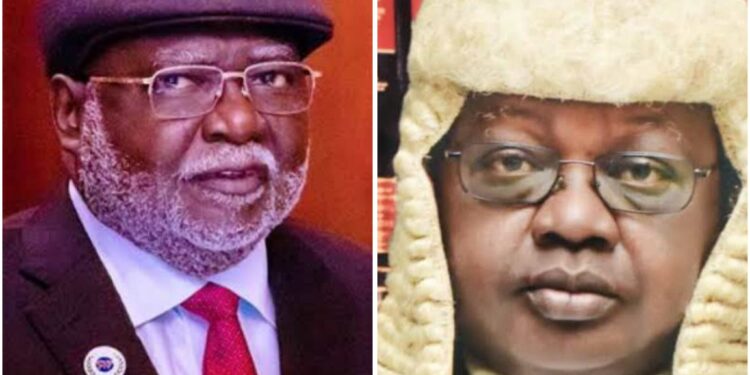Retired Justice of the Supreme Court of Nigeria, Musa Dattijo Muhammad has raised a concern over the existing structure of the judiciary and the concentration of power within the office of the Chief Justice of Nigeria (CJN).
In his retirement speech on Friday in Abuja, Justice Muhammad highlighted that the CJN serves as the Chairman of multiple significant bodies, including the National Judicial Council (NJC), the Federal Judicial Service Commission (FJSC), the National Judicial Institute (NJI), and the Legal Practitioners Privileges Committee (LPPC), which appoints Senior Advocates of Nigeria.
According to him, the oversight functions of these bodies should not rest solely on one individual and argued that an individual with absolute powers could be susceptible to corruption and that such extensive authority could be effortlessly abused.
One of the key concerns raised in the speech was the CJN’s unilateral authority to appoint members to various councils, boards, and committees within these judicial bodies.
“A person with absolute powers, it is said, corrupts easily and absolutely. As Chair of NJC, FISC, NJ and LPPC, appointments as council, board and committee members are at his pleasure. He neither confers with fellow justices nor seeks their counsel or input on any matter related to these bodies. He has both the final and the only say.
The CJN has power to appoint 80 percent of members of the council and 60 percent of members of FJSC. The same applies to NJI and LPPC, Such enormous powers are effortlessly abused. This needs to change. Continued denial of the existence of this threatening anomaly weakens effective judicial oversight in the country,” he stressed.
Justice Muhammad continued “By the provision of Paragraph 20 of Part One of the Third Schedule to the 1999 Constitution of the Federal Republic of Nigeria, as amended, the NJC shall comprise the following Members: the Chief Justice of Nigeria, who shall be the Chairman; the next most senior Justice of the Supreme Court who shall be the Deputy Chairman.
Regrettably, the next most senior Justice of the Supreme Court like Deputy Governors of State, shorn of any official function except at the pleasure of the Governor, is neither consulted on anything nor does he have any official function. His job as No. 2 is purely as the CJN pleases. It is incumbent that the system provides for more inclusion and consultation among the stakeholders.”
Retired Justice Muhammad, however, called for a reevaluation of the existing structure and responsibilities of the CJN in Nigeria’s judicial system
